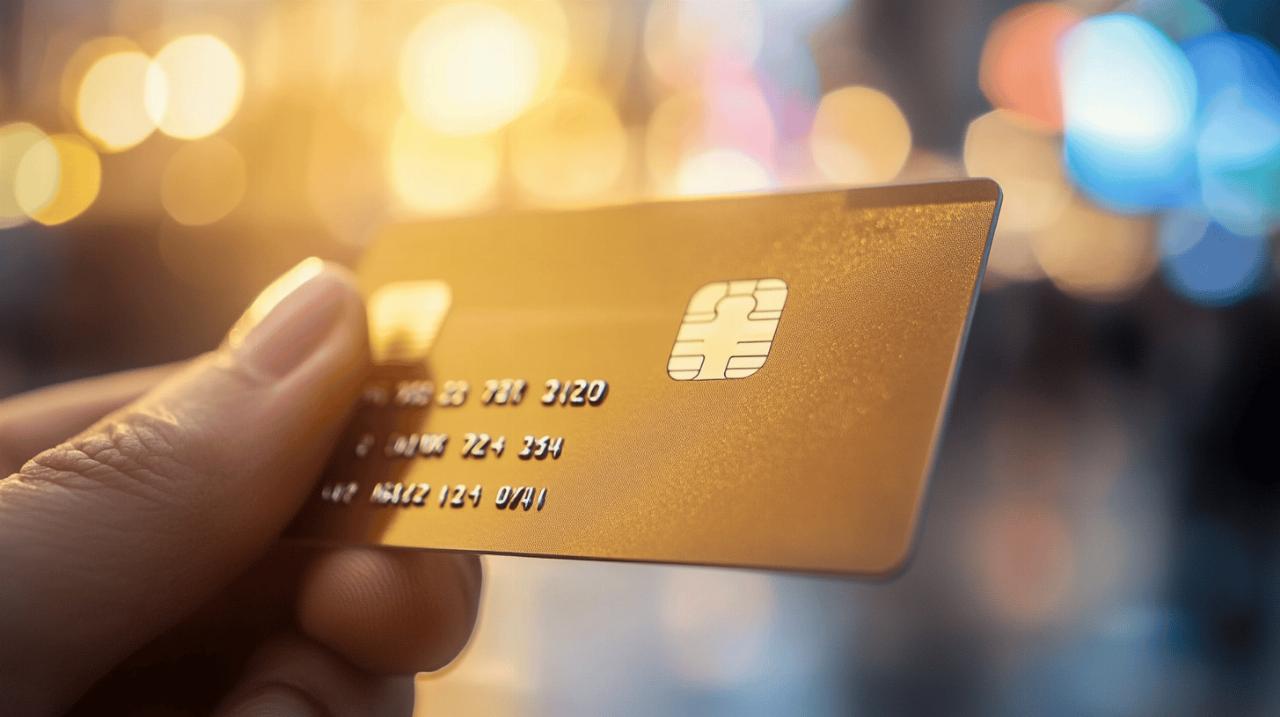How to Report Opposition Carte for Your CIC Maestro Parcours J: Essential Steps for Young Account Holders
Navigating the world of youth banking with your CIC Maestro Parcours J card brings both independence and responsibility. Whilst this debit card, designed specifically for young account holders within the Crédit Mutuel group, offers a practical introduction to managing finances, understanding what to do when transactions go awry is essential. Whether you've spotted an unfamiliar charge on your statement or received goods that simply aren't up to scratch, knowing how to report card opposition and initiate payment reversals ensures you stay in control of your money.
Understanding Your CIC Maestro Parcours J Card and When to Report Issues
What Makes the Parcours J Card Different for Young Bankers
The Parcours J card stands out as a tailored banking solution for younger customers who are taking their first steps toward financial independence. Unlike standard debit cards, this offering from CIC is structured to provide both freedom and oversight, making it an ideal training ground for responsible money management. Parents often appreciate the built-in controls that allow them to monitor spending whilst young account holders gain practical experience handling their own funds. The card functions as a standard Maestro debit card, meaning it draws directly from your account balance rather than offering credit facilities. This design helps prevent overspending and encourages mindful budgeting from an early age. The Parcours J programme typically includes educational resources and support designed to help young people understand banking fundamentals, transaction security, and the importance of tracking expenditure. As you become more comfortable with your card, understanding when and how to challenge problematic transactions becomes an essential skill that will serve you throughout your financial life.
Common scenarios requiring card opposition or payment disputes
Several situations might prompt you to contact CIC about your Parcours J card. Perhaps the most concerning scenario involves spotting transactions you simply don't recognise on your statement. These could range from subscription services you never authorised to potentially fraudulent activity. Another common situation arises when you've purchased something that arrives damaged or fails to meet the description provided by the seller. If a concert gets cancelled or a service provider fails to deliver what was promised, you may need to consider requesting a payment reversal. Sometimes technical errors occur during payment processing, resulting in duplicate charges for the same purchase. Additionally, if your card goes missing or you suspect it's been compromised, immediate opposition is necessary to prevent unauthorised use. Understanding these scenarios helps you recognise when to take action rather than simply accepting problematic charges. Time often proves crucial in these situations, so familiarising yourself with the reporting process before issues arise gives you a significant advantage when responding to payment problems.
Step-by-Step Guide to Reporting Card Opposition and Suspicious Transactions
Immediate actions when you spot unrecognised transactions
The moment you notice something amiss on your account, swift action becomes your best defence. Start by carefully reviewing your recent transaction history through online banking or your mobile app to verify the suspicious charge truly is unauthorised rather than simply forgotten. Check the transaction date, amount, and merchant name carefully, as legitimate purchases sometimes appear under different business names than you might expect. Once you've confirmed the transaction is genuinely problematic, contact CIC immediately to report the issue. The bank's customer service team can place a temporary hold on your card to prevent further unauthorised transactions whilst the investigation proceeds. Document everything related to the suspicious activity, including screenshots of your transaction history, dates, amounts, and any correspondence with merchants if you've attempted to resolve the matter directly. This evidence will prove invaluable during the investigation process. Avoid attempting to use the card for further transactions until you've received guidance from the bank, as this could complicate the investigation. Remember that reporting suspicious activity promptly not only protects your current balance but also helps the bank identify and prevent similar fraud affecting other customers.
Contacting CIC: Channels and Information You'll Need at Hand
CIC offers several channels for reporting card issues, each suited to different circumstances and urgency levels. For immediate concerns, particularly suspected fraud or a lost card, telephone contact remains the fastest option. The bank maintains dedicated helplines for card opposition that operate outside standard banking hours, recognising that problems don't always occur during convenient times. When calling, have your account details ready, including your account number, card number, and personal identification information. You'll need to explain the nature of the problem clearly, providing specific details about questioned transactions. For less urgent matters, you can visit your local CIC branch where staff can guide you through the opposition or dispute process in person. This option works particularly well if you need help gathering documentation or understanding the next steps. Online banking platforms and mobile apps increasingly offer digital reporting options, allowing you to flag transactions and submit initial dispute information electronically. Whichever method you choose, be prepared to provide detailed information about the transaction in question, including the date, amount, merchant name, and why you're disputing the charge. The more thorough your initial report, the more efficiently CIC can begin investigating your claim.
Navigating the Payment Reversal Process for Faulty Goods and Services
Building your case: documentation and evidence requirements
 Successfully securing a payment reversal often depends on the strength of evidence you can provide to support your claim. Start by gathering all correspondence with the merchant, including order confirmations, delivery notifications, and any communication regarding the problem. If you received faulty goods, photographs clearly showing the damage or defect prove invaluable. For services that weren't delivered as promised, collect any promotional material or contract terms that demonstrate what you were supposed to receive versus what actually transpired. Bank statements showing the transaction and any refund attempts provide essential timeline documentation. If you've attempted to resolve the matter directly with the merchant, save emails, chat transcripts, or notes from phone conversations detailing their response or lack thereof. This demonstrates you've made reasonable efforts to settle the dispute before involving the bank. Product descriptions from websites, screenshots of terms and conditions, and reviews from other customers experiencing similar issues can strengthen your case. Organise this documentation chronologically and clearly label each piece of evidence. When submitting your claim to CIC, a well-organised dossier significantly increases the likelihood of a favourable outcome, as it allows the bank to quickly understand the situation and assess the validity of your dispute.
Successfully securing a payment reversal often depends on the strength of evidence you can provide to support your claim. Start by gathering all correspondence with the merchant, including order confirmations, delivery notifications, and any communication regarding the problem. If you received faulty goods, photographs clearly showing the damage or defect prove invaluable. For services that weren't delivered as promised, collect any promotional material or contract terms that demonstrate what you were supposed to receive versus what actually transpired. Bank statements showing the transaction and any refund attempts provide essential timeline documentation. If you've attempted to resolve the matter directly with the merchant, save emails, chat transcripts, or notes from phone conversations detailing their response or lack thereof. This demonstrates you've made reasonable efforts to settle the dispute before involving the bank. Product descriptions from websites, screenshots of terms and conditions, and reviews from other customers experiencing similar issues can strengthen your case. Organise this documentation chronologically and clearly label each piece of evidence. When submitting your claim to CIC, a well-organised dossier significantly increases the likelihood of a favourable outcome, as it allows the bank to quickly understand the situation and assess the validity of your dispute.
Understanding time limits and merchant dispute rights
Payment dispute processes operate within strict timeframes that vary depending on the nature of the claim and the card network regulations. Generally, you have a limited window from the transaction date to raise a dispute, often ranging from several weeks to a few months depending on the specific circumstances. Missing these deadlines can result in losing your right to challenge the payment, regardless of how valid your complaint might be. Once you submit a dispute, CIC will investigate the claim, which involves contacting the merchant and reviewing the evidence from both parties. The merchant has the right to contest your claim by providing their own evidence that the transaction was legitimate and the goods or services were delivered as promised. This creates a potentially lengthy process where patience becomes necessary. During the investigation, the disputed amount might be temporarily credited to your account, though this isn't guaranteed and depends on the initial assessment of your claim. If the investigation concludes in your favour, the reversal becomes permanent. However, if the merchant successfully defends the transaction, you'll need to settle the payment. Understanding that reversals aren't automatic or guaranteed helps set realistic expectations. The process exists to protect consumers from genuine fraud and merchant failures whilst also preventing abuse of the system. Presenting a thorough, honest case with solid documentation gives you the best chance of a successful outcome within these established parameters.
Protecting Your Account: Prevention Tips and Best Practices for Parcours J Holders
Monitoring your statements and setting up transaction alerts
Proactive account monitoring represents your first line of defence against unauthorised transactions and helps you spot problems before they escalate. Make reviewing your transaction history a regular habit, checking at least weekly through your online banking portal or mobile app. This frequent monitoring allows you to identify suspicious activity whilst details remain fresh and within dispute timeframes. Many banking apps now offer customisable transaction alerts that notify you immediately when your card is used, providing real-time awareness of account activity. Set up notifications for all transactions or establish thresholds that trigger alerts for purchases above certain amounts. These instant notifications mean you'll know within moments if someone attempts to use your card without authorisation, allowing you to contact CIC immediately. Take time to familiarise yourself with your spending patterns so unusual transactions stand out more readily. If you notice a charge you don't recognise, investigate it promptly rather than assuming it's legitimate. Contact merchants directly if you're uncertain about a charge, as sometimes business names on statements differ from the shop names you know. Keeping receipts for a reasonable period allows you to cross-reference your physical purchases against your digital statement. This organised approach to account management not only protects against fraud but also helps you develop strong budgeting skills and financial awareness that will benefit you throughout life.
What to Do If Your Card Goes Missing or Gets Nicked
Discovering your card has vanished or been stolen demands immediate action to prevent unauthorised use and limit your liability. The moment you realise your card is missing, contact CIC's card opposition service regardless of the time of day. Reporting the loss or theft promptly ensures the card is blocked before anyone can use it fraudulently. When reporting, you'll receive a reference number for the opposition, which you should keep safely as proof of when you reported the issue. Following the initial phone report, you may need to visit your branch or submit written confirmation of the loss. The bank will cancel your existing card and issue a replacement, though this process takes several days, so plan accordingly for any necessary transactions during this period. Whilst waiting for your new card, monitor your account carefully for any transactions you don't recognise that occurred before the card was blocked. Report these immediately as potential fraud. If your card was stolen rather than simply lost, consider filing a police report, particularly if other items were taken at the same time or if you suspect identity theft might be attempted. Update any recurring payments or subscriptions linked to the old card number once you receive your replacement. Taking these swift, comprehensive steps minimises the risk of financial loss and demonstrates the responsible behaviour that protects both your account and the wider banking system from fraudulent activity.
